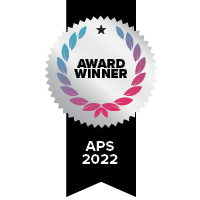Back
PHYSIOLOGY
Category: Physiology
Session: 555 APS Cerebral Circulation Poster Session
(555.2) Constrictor Responses of Cerebral Resistance Arterioles Preserved in Male and Female Rats Exposed to Prenatal Alcohol
Sunday, April 3, 2022
10:15 AM – 12:15 PM
Location: Exhibit/Poster Hall A-B - Pennsylvania Convention Center
Poster Board Number: E62
Tiffany Knecht (University of South Dakota), Partha Saha (University of South Dakota), Denise Arrick (University of South Dakota), Michael Watt (University of Otago), Jamie Scholl (University of South Dakota), William Mayhan (University of South Dakota)
Tiffany Knecht
Presenting Author
University of South Dakota
Presenting Author(s)
Fetal alcohol spectrum disorder (FASD) is the result of exposure to alcohol in utero. This disorder causes lifelong intellectual and behavioral disabilities, as well as cardio and cerebrovascular dysfunction. However, the mechanisms by which these abnormalities arise are poorly understood, and no treatment exists. Past studies have shown that dilation of cerebral arterioles to nitric oxide synthase (NOS)-dependent agonists is impaired in rats exposed to prenatal alcohol, yet no studies have examined the influence of prenatal alcohol on constrictor responses of cerebral arterioles. We hypothesize that in utero alcohol exposure may impair the activity of the vascular smooth muscle, which could lead to an alteration in the ability of the cerebral arterioles to constrict in response to endogenous vasoconstrictor agents. Therefore, the goal of this study was to determine whether responses of cerebral arterioles to vasoconstrictors are altered in rats exposed to alcohol in utero. We fed Sprague-Dawley dams a liquid diet with or without alcohol (3% ethanol) for the duration of their pregnancy (21-23 days). We then examined the reactivity of the cerebral arterioles of the pups to arginine vasopressin (AVP; 0.1 and 1 nM), thromboxane (U-46619; 10 and 100 nM), and angiotensin II (1 and 10 µM) in four groups: control male, control female, prenatal alcohol male, and prenatal alcohol female, at two different age ranges: 4-6 weeks of age and 14-16 weeks of age. We found that constrictor responses of cerebral arterioles to AVP and the thromboxane analog (U-46619) were similar in control rats and rats exposed to prenatal alcohol at both age groups for both sexes. In addition, adolescent male and female rats showed no difference to angiotensin II following prenatal exposure to alcohol. However, alcohol-exposed females exhibited an unexpected dilation to the high concentration of angiotensin II in adulthood, which was absent in males. We suggest that the findings from these studies may have implications regarding the susceptibility of the brain to cerebral ischemic damage. We speculate that impaired vasodilation, with preserved vasoconstriction, can lead to a scenario favoring a decrease in cerebral blood flow during times of increased metabolic demand. This is the first published study to examine the influence of in utero exposure to alcohol on constrictor responses of cerebral arterioles. Further understanding of how cerebrovascular blood flow may be altered in rats with FASD can ultimately lead to an understanding of how the resulting ischemic damage may relate to intellectual and behavioral abnormalities.
This research was supported by the National Institute of Drug Abuse and the National Institute on Alcohol Abuse and Alcoholism of the NIH with grants R25-DA033674 and R01 AA027206-01, respectively.
This research was supported by the National Institute of Drug Abuse and the National Institute on Alcohol Abuse and Alcoholism of the NIH with grants R25-DA033674 and R01 AA027206-01, respectively.

